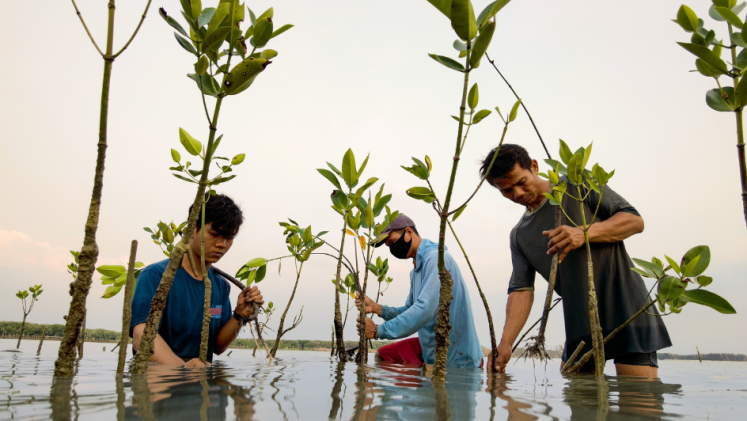The "Nature-Based Solutions for Comprehensive Disaster and Climate Risk Management (CRM-NbS Toolkit)", published by UNU-EHS and UNDRR, is a key resource to support countries in integrating nature-based solutions (NbS) into their disaster risk reduction and climate change adaptation strategies. This toolkit aligns with the UNDRR approach to comprehensive risk management (CRM), linking the Sendai Framework for Disaster Risk Reduction to the Paris Agreement. Here are the five tools from the Toolkit that are crucial for building resilient and sustainable communities.
Tool 1. Knowledge Compilation: Harnessing Local Wisdom
The first tool emphasizes the importance of gathering data, information and knowledge about a country's environment, climate, natural hazards and vulnerabilities. This comprehensive assessment links natural to social features and includes the impacts on local communities. By understanding the specific national and subnational contexts, countries can tailor their disaster risk management strategies effectively.
Tool 2. Policy Keyword Mapping: Unlocking the Potential of Nature-based Solutions
The second tool provides a list of keywords to help countries evaluate the presence of NbS concepts in their national policies and plans. This assessment identifies entry points for integrating or enhancing NbS in existing strategies on national or sub-national scales. By recognizing these conceptual gaps, countries can develop new or revise existing policies to better incorporate NbS.
Tool 3. Intervention Selection: Choosing the Right Path
The third tool guides the selection of appropriate NbS interventions, offering categories and options for integrating these solutions into policies and plans. This tool helps policymakers and planners choose the most effective NbS strategies that align with their specific environmental and socio-economic contexts, ensuring a strategic and impactful implementation.
Tool 4. Stakeholder Engagement: Building Inclusive Governance
The fourth tool focuses on identifying relevant state and non-state actors and stakeholders. It provides guidance on inclusive governance, ensuring that all voices, especially those of marginalized and vulnerable groups, are heard and considered in the planning process. Inclusive stakeholder engagement linking the national and sub-national level is crucial for the successful integration and sustainability of nature-based solutions.
Tool 5. Global Integration Insights: Learning from Success
The fifth tool offers an overview of how various countries have already integrated NbS into their national policies and planning landscapes. This tool serves as a reference, showcasing successful examples and best practices from introducing NbS in risk and climate strategies that can inspire and guide other countries. A checklist is provided to support national actors in implementing these tools effectively.





